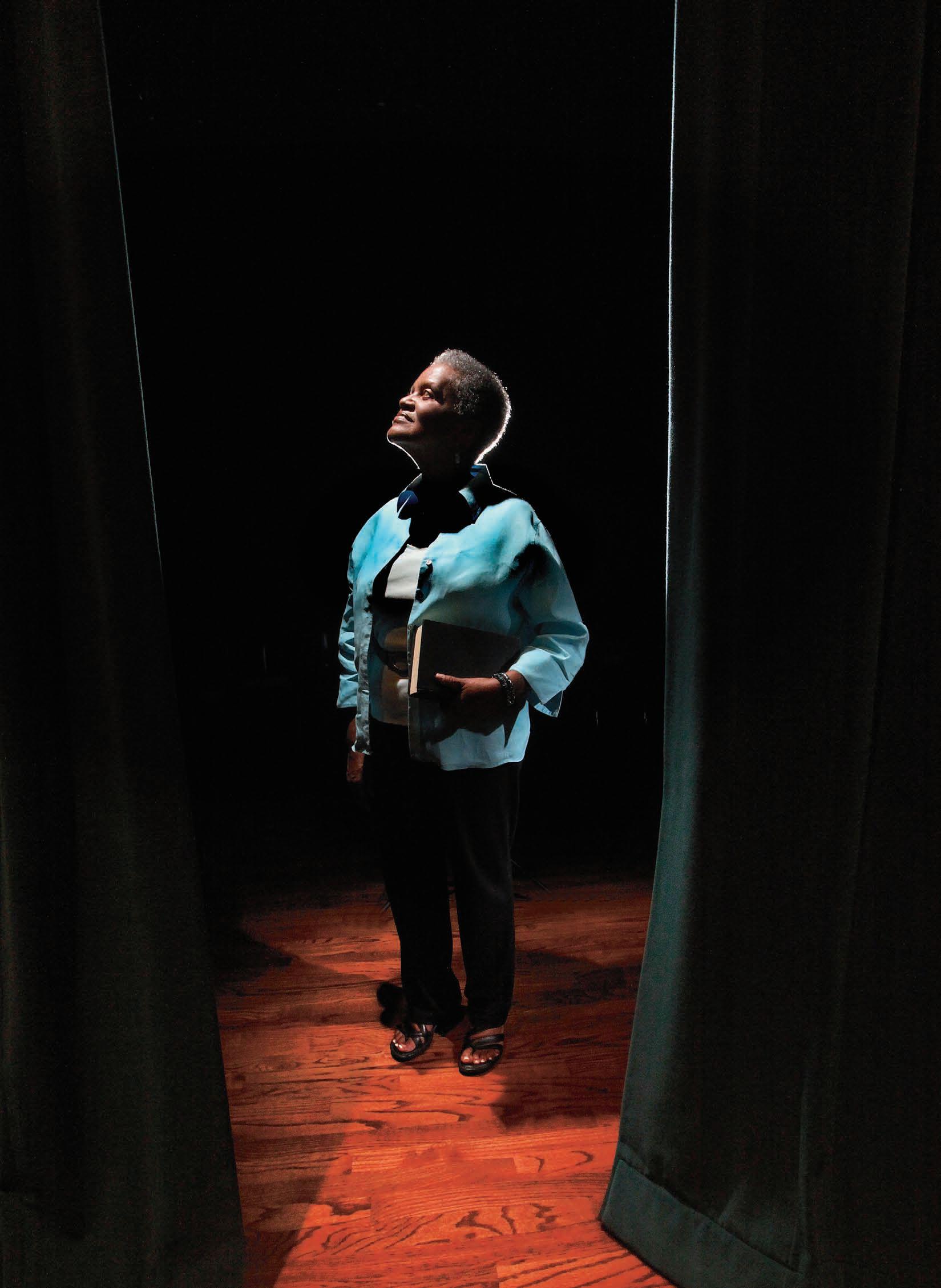
3 minute read
A life worthwhile
70- to 90-somethings share the secrets to eternal (or at least very long lasting) youth
Story
by Rachel Stone
Photos by Can Türkyilmaz and Benjamin Hager
American Industrialist Henry Ford once said, “Anyone who stops learning is old, whether at 20 or 80. Anyone who keeps learning stays young. The greatest thing in life is to keep your mind young.”
Ford touched on a secret that many Oak Cliff people have unearthed and embraced. Learning and doing create a motive for living well. These folks, some two decades past retirement age, are not ready to kick back and let the golden years quietly pass.
Africa tour guide
Emma Rodgers drove all over Dallas looking for books to give as party favors for her 5-year-old son’s birthday party.
It took her all day to find 10 books she liked for the children.
That was 1977. Later that year, she and a colleague started up a mail-order business, selling books. A few years later, they opened Black Images Book Store in Wynnewood Shopping Center.
“We felt that if we had a need for books for ourselves and our children, then other people would have the same need,” Rodgers says.
The business flourished for 30 years, serving the neighborhood as well as Dallas ISD, for which they ordered books, and major corporate clients.
They closed Black Images in January 2007. But Rodgers, 67, keeps herself busy in retirement.
Next year, she will begin her third term on the City Plan Commission. She is a board member for the TeCo Theater, and during the summer, she teaches a class at the day camp there. She facilitates a monthly book club at Charlton Methodist hospital. She volunteers as a publicist for the annual Irma P. Hall Theater Arts Festival. And she is the founder of Romance Slam Jam, an annual literary conference that brings readers and romance writers together, now in its 17th year.

The cause that’s closest to her heart, however, is ROPP Inc., a six-year enrichment program for teenage girls. Every other year, she organizes and guides a trip for the girls to Ghana, West Africa.
Through the program, girls learn life skills such as community service and how to manage money, as well as practical skills such as cooking and sewing.
At the end of the program, they graduate with a rite of passage that is based on African traditions. It was Rodgers’s idea to bring the girls of ROPP to Ghana for the ritual.

The girls raise money themselves for the trip.
“I went to London one time, and this lady said to me, ‘I’ve never seen any black people on ‘Dallas’ ” Rodgers recalls. “There were no black people on that show, and that’s all she knew about Dallas.”


Americans have similarly misguided conceptions about Africa, she says.
“I want Americans to become familiar with the continent of Africa because on the news, all we see are the negative things about Africa — famine, mismanagement, war,” she says. “And there’s so much more to it than that.”
Jean Barrar
Cancer survivor devotes her life to volunteering

Jean Barrar remembers riding home from the hospital Dec. 24, 1956, thinking it would be the last Christmas she would spend with her children.
She’d had cancer surgery, a colostomy, and her odds of surviving were one in four. She thought she was going home to die.
For the next five years, she lived in constant fear of death. But on the five-year anniversary of her surgery, in 1961, she realized she was going to live.
“They said if you could survive five years, then you were cured,” she says. “I tell people I’m like a butterfly. I had a chrysalis.”
She spread her wings volunteering for the American Cancer Society, and serving cancer patients became her lifelong passion. At first she drove cancer patients to Parkland for X-ray ra- diotherapy. When Baylor Hospital acquired a cobalt radiation machine, she and other volunteers brought carloads of patients for treatment.

She soon realized she had a gift for working with patients. She would drive to sick people’s homes and convince them to go back to treatment.
She served on the American Cancer Society’s Texas board. And in 1982, she helped conduct a cancer prevention study. She served as a spokeswoman for the American Cancer Society and visited people in hospitals. And she has put in hundreds of volunteer hours with other charities and service organizations, including First Methodist Church, where she has been a member since 1934. She also had a career as an executive assistant at a scale company.
She remembers visiting a woman who had just received a colostomy, and she was threatening suicide.
“When she saw I lived with this hole in my side all these years, that made her see it was OK,” Barrar says.
Barrar, who is 91, lived most of her life in Oak Cliff, but she has lived in Vickery Towers retirement center in East Dallas for the past nine years. Her vision has started to fail, so she can’t drive, which prevents her from volunteering as much. But she still does as much as she can. She’s a “Caring Caller” through the Senior Source, so she calls someone who’s homebound once a week to chat. She’s a new-resident ambassador at Vickery Towers. And she still volunteers at church.
“My mother told me she wanted to wear out, not rust out,” Barrar says. “I’m minding my mother.”









